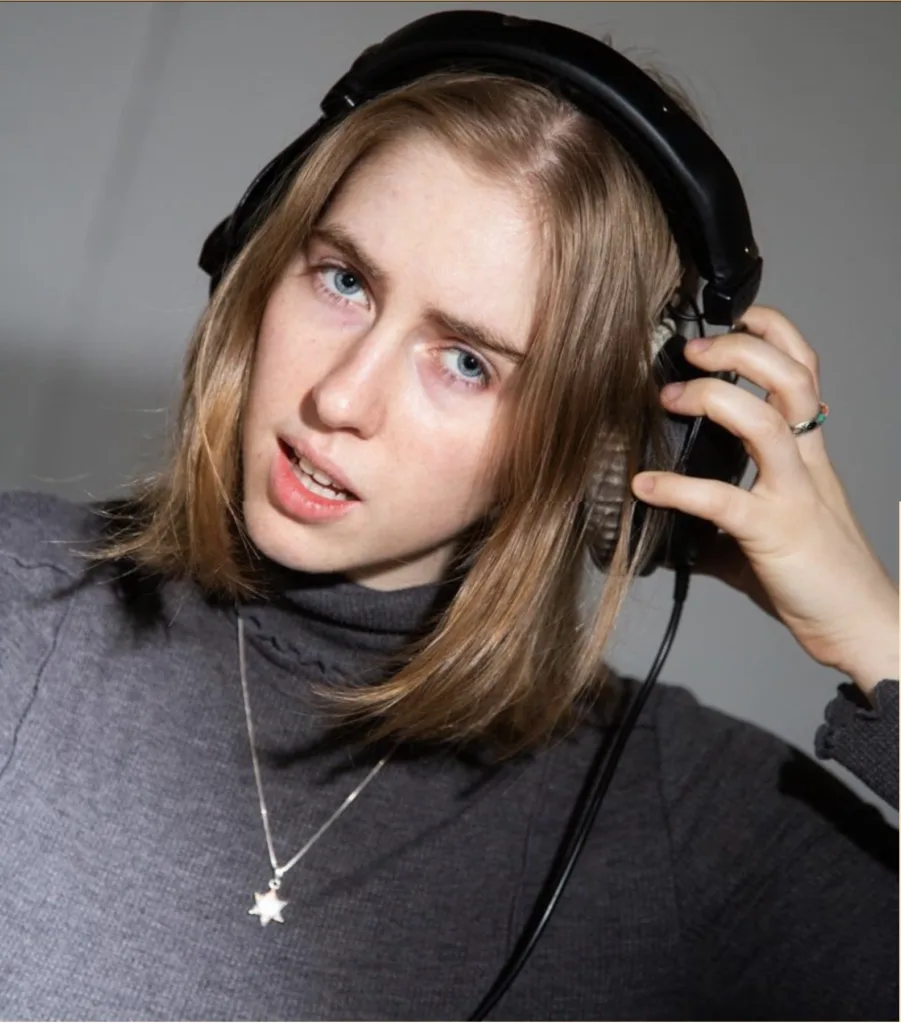An Indie Musician’s Journey to Jewish Sound

Editor’s Note: A version of this article was originally published in Havurah on April 17, 2024.
Leah Dunn is an audio engineer, producer, and recording artist. She joined the Havurah team as the music director in the summer of 2022. After attending high school at Interlochen Arts Academy where she studied songwriting, the Bay Area native is currently pursuing a BFA at NYU’s Clive Davis Institute of Recorded Music. Her most recent album “Calendar Collection” was released as 12 singles over the course of 2022, and is available along with her other releases “Wetsuit,” and “Oakland,” on all streaming platforms.
“I’m a songwriter, I was a performer for a long time (I joke I’ve since retired), and now I would consider myself more of an engineer and producer.”

Dunn’s musical journey began in high school at the Interlochen Arts Academy, where she studied songwriting. This foundational experience paved the way for her evolving musical style, described as witty, introspective indie rock with a penchant for unique sound combinations.
“I think I didn’t have a strong sense of Jewish identity until I came to NYU.” The vibrant Jewish community at NYU and her involvement with Hillel provided her with a sense of belonging and connection to like-minded creative individuals. This newfound community support played a crucial role in her personal and artistic development, helping her integrate her Jewish heritage more confidently into her music and public persona.
“For the longest time I was scared of outwardly identifying as a Jewish artist. Until I was on my gap year in Israel, it was never something even on my radar.” One poignant example of this integration into Jewish music is her song “Heresy,” from her second album, which explores her experiences at a Catholic high school and her deeper connection to Judaism. “My mindset shifted when I realized I could talk about Judaism in my writing in an elegant way,” Dunn said, reflecting on how she learned to weave her faith into her music without it feeling forced or superficial.
“I think there’s a lot of pressure to be an activist right now, but simply existing, making art, and being a Jew is enough.”
Dunn’s experience as Havurah’s music director has further solidified her dedication to Jewish artistic expression. She has been instrumental in creating spaces where Jewish musicians can explore and expand their artistic boundaries, whether through songs in Yiddish, Hebrew, or other personal Jewish expressions.

The challenges of antisemitism became intensely personal for Dunn while studying abroad in Berlin, particularly after the events of October 7th. As the only religious Jew among her peers, she faced isolation and a profound sense of aloneness. Despite these difficulties, she continued to create music, viewing her work as a wordless commentary on Jewish life in the diaspora. “I was very much alone,” she recalled about her time in Berlin, underscoring the solitude that shaped her artistic output during this period.
“At the same time, as musicians who go to Berlin so often do, I was making ambient music for the first time in my life,” Dunn explained. “I had just finished my first piece on October 6. I was proud of it. After October 7, I still had another music assignment to turn in, and I forced myself to create even though it was the last thing I wanted to do. The musical gap between the two pieces is quite large. I’m back in New York now, and I’m revisiting the pieces to get them ready for release. I see them as a sort of wordless commentary on Jewish life in the diaspora pre and post October 7, especially at a time when it felt like there was nothing I could say.”
Today, Dunn looks back with pride on her resilience and accomplishments. Beyond her albums and her growth as an audio engineer, she is proud of her leadership at Havurah and the community she has helped foster.
“As a student in the arts, I’m proud that I’ve stayed passionate about school, and am still pushing myself to learn new things. I’m proud that I’ve released 2 albums. I’m proud that my freelance engineering is starting to pay for my groceries. I’m proud of Havurah, the community we’ve created, and the artistic growth of our work over the years.”